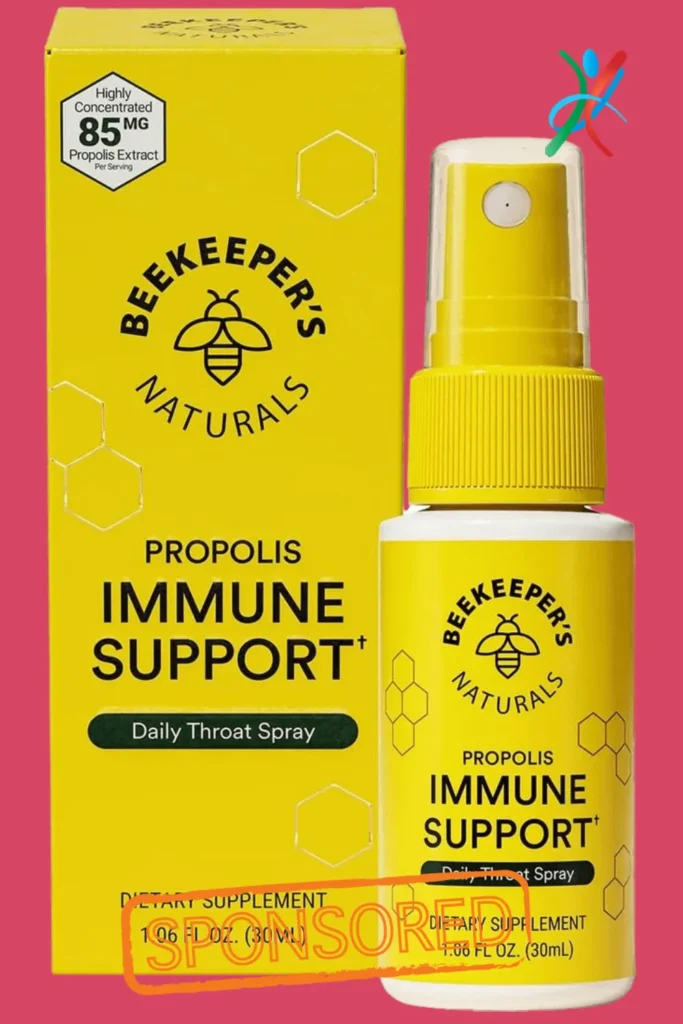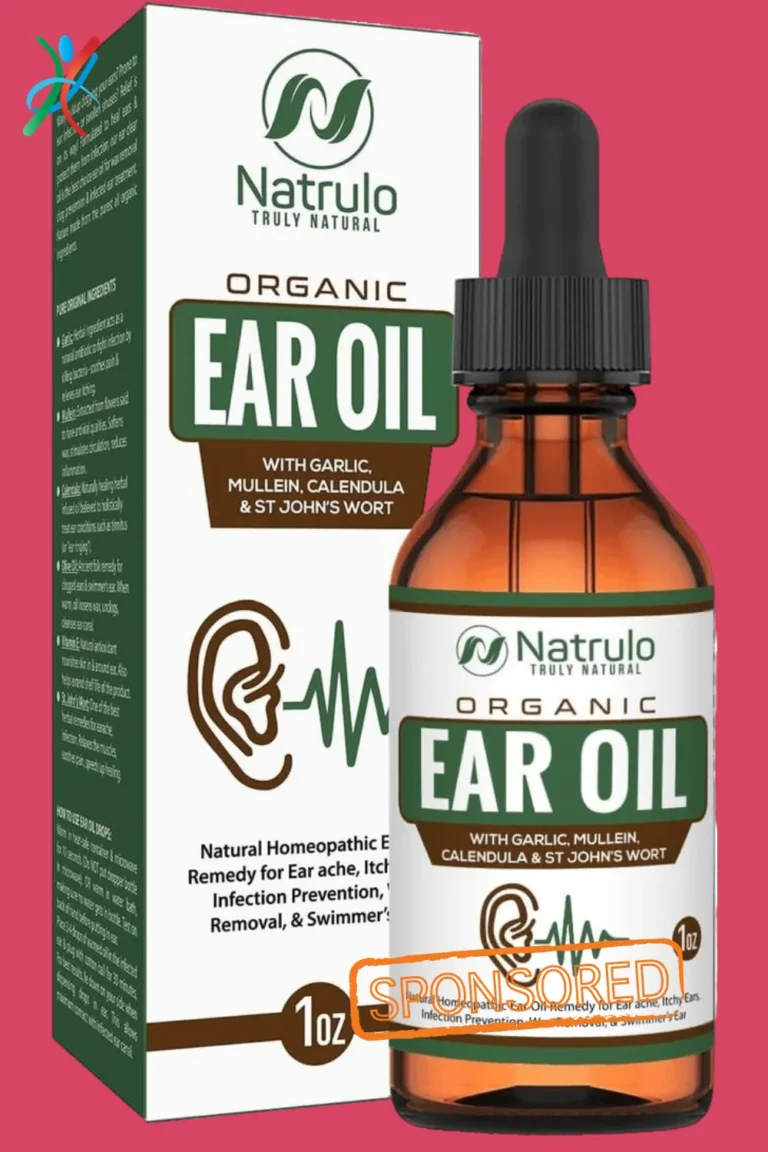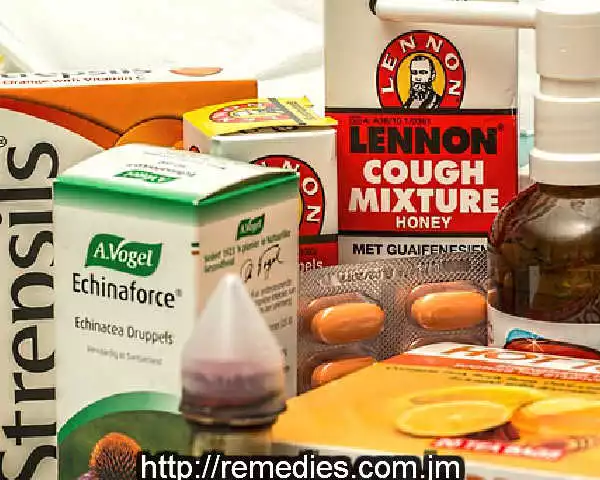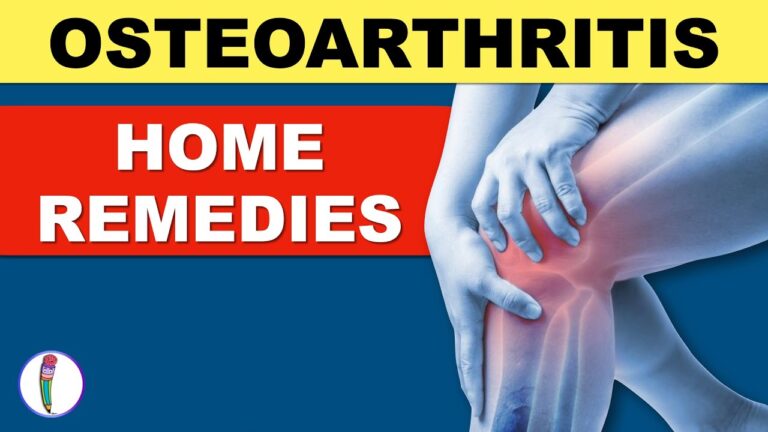Sore Throat Remedies
Imagine swallowing shards of glass, each gulp a grim reminder of your raw, inflamed throat.
A sore throat can transform even this simplest act of swallowing into a torturous ordeal.
Amid cold and flu season or after a night of cheering your favorite team, it’s a common yet uncomfortable ailment we all dread.
Understanding the ins and outs of this pesky condition is the first step toward relief.
Whether it’s a viral infection, allergies, or the dry air of winter that’s sparked your discomfort, recognizing the symptoms and causes is crucial.
With this information, you can tailor your approach to soothe that tender throat.
Embark on a journey to tranquility with “The Ultimate Guide to Soothing a Sore Throat: Home Remedies and Treatments.
” From the warm embrace of a salt water gargle to the clinical assistance of over-the-counter meds, this comprehensive guide promises a trove of remedies and practical wisdom to reclaim your comfort and health.
Table of Contents Sore Throat Remedies
Understanding Sore Throats
A sore throat, familiar to many as a hallmark of impending illness, is a condition that can range from a mild nuisance to a severe ache that interferes with everyday activities.
Often brought about by environmental factors or an initial sign of infection, this discomfort can manifest as a raw, scratchy sensation that intensifies when swallowing.
What is a Sore Throat?
At its core, a sore throat, or pharyngitis, encompasses any discomfort, pain, or scratchiness in the throat.
The act of swallowing, ordinarily second nature and painless, becomes a conscious effort fraught with discomfort.
While a fleeting sore throat might be experienced occasionally and resolve spontaneously, persistent or severe cases warrant closer attention.
The distinction between a viral and bacterial sore throat is a crucial one.
The vast majority result from viruses, such as those causing the common cold or flu, and are self-limiting.
On the other hand, bacterial infections—strep throat being a prime example—although less common, can lead to serious complications if left untreated.
Common Causes of Sore Throats
A soupçon of causes leads to the irritation known as a sore throat.
Viral infections, bringing along colds or the flu, sit atop the list.
However, bacterial culprits, most notably the group A Streptococcus bacteria, warrant attention as they necessitate antibiotic intervention.
Beyond microbes, irritants such as smoke, chemicals, and allergens present in the environment too can inflame the delicate mucous membranes of the throat.
Additionally, acid reflux, where stomach acids reach the throat, represents a non-infectious source of pain and discomfort.
Other less conventional triggers may include autoimmune diseases or more serious conditions, such as tumors or trauma.
Symptoms of a Sore Throat
The symptoms accompanying a sore throat can span a spectrum, from the expected throat discomfort and difficulty swallowing to more systemic manifestations like fever and cough.
Red flags that call for immediate medical consultation include breathing problems, excessive drooling (indicative of an inability to swallow), and a sore throat that either shows no signs of improvement despite treatment or worsens rapidly.
High fever and swollen lymph nodes, especially in the absence of other cold or flu symptoms, underscore the need for professional evaluation.
These could signal bacterial infections such as strep throat or more consequential conditions that require a thorough investigation and targeted intervention.
Home Remedies for Soothing a Sore Throat
When dealing with a sore throat, comfort is key, and home remedies can offer significant relief.
Throat lozenges containing topical anesthetics and chloraseptic throat sprays are suitable for children over the age of five and adults alike, easing sore throat pain and delivering longer-lasting results.
Additionally, natural ingredients such as lemon and honey mixed in warm drinks like ginger tea can help to soothe the irritated area.
While over-the-counter cold medicines, including those with pseudoephedrine, can offer quick relief, it’s essential to heed medical advice, especially for individuals with health conditions like high blood pressure or pregnancy.
Other measures to maintain throat comfort include keeping the throat moist through the use of humidifiers or peppermint sprays and using children’s acetaminophen for pain management.
It’s worth noting that certain remedies, such as apple cider vinegar and various essential oils, while popular, lack solid clinical evidence for their efficacy against sore throats.
When symptoms persist or worsen, it’s crucial to consult a healthcare provider.
Warm Water Gargles
A traditional and effective method for alleviating sore throat symptoms is to gargle with warm salt water.
The warmth of the water provides immediate soothing, while the salt helps break down throat secretions and can reduce bacterial presence, offering a dual action remedy.
The American Osteopathic Association suggests gargling at least once every hour for maximum benefit.
To prepare the solution, dissolve one teaspoon of salt in a glass of warm water and gargle for about 30 seconds, avoiding swallowing the mixture.
Throat Lozenges and Sprays
Throat lozenges are a portable and convenient solution for sore throat relief.
Those containing ingredients such as benzocaine, menthol, or phenol can numb the area, offering a respite from the pain.
Lozenges that are menthol-based can also provide a cooling sensation that soothes the throat.
For faster action, throat sprays with numbing agents like benzocaine can be used to directly target the area of discomfort.
Hard candies can serve as a mild alternative for children and help in keeping the throat moist.
Warm Liquids and Soups
The healing power of warm liquids should not be underestimated when treating a sore throat.
Herbal teas, such as chamomile or peppermint, can calm inflamed mucous membranes, and adding lemon and honey to warm water can aid in thinning congestion.
Chicken soup, with its warmth and anti-inflammatory properties, acts as both a nutritious meal and a natural remedy.
Broths are gentle on the throat, easy to consume, and can provide soothing warmth that promotes healing.
Salt Water Gargles
Similar to warm water gargles, salt water gargles help alleviate pain and reduce the bacterial load in the throat.
Executing this simple procedure regularly can assist in diminishing swelling and easing discomfort.
Additionally, a 2005 study highlighted that salt water gargling might even help prevent upper respiratory infections, making it not only a remedy but also a preventive measure against further throat complications.
Natural Remedies for Sore Throats
Among natural remedies, honey stands out not only for its soothing texture but also for its antibacterial properties.
When mixed with lemon in warm water, it can also boost vitamin C intake.
Herbal teas like peppermint and chamomile are noted for their calming effects, and gargling with a mixture of baking soda and water is another alternative to saltwater that some find beneficial.
Warm ginger tea is also a well-regarded option that can calm an inflamed throat.
When using any home remedy, it’s crucial to consider individual health conditions and potential allergies.
Managing a sore throat with natural remedies is generally safe and effective, but persistent symptoms should be evaluated by a healthcare professional to rule out more severe illnesses.
Over-the-Counter Medications for Sore Throats
When a sore throat strikes, various over-the-counter (OTC) medications can provide relief.
Antihistamines play a crucial role for those whose sore throat is a byproduct of allergies, by reducing postnasal drip that can irritate the throat.
Similarly, for individuals suffering from acid reflux-induced throat discomfort, antacids are available OTC to neutralize stomach acid and reduce the acid’s harmful effects on the throat lining.
However, for immediate sore throat pain relief, OTC pain relievers, such as ibuprofen or acetaminophen, come highly recommended.
These medications can decrease the discomfort associated with a sore throat.
Additionally, healthcare providers often suggest OTC medicines, including decongestants and cough suppressants, to ease cold symptoms, which can alleviate the sore throat that often accompanies a common cold.
It is important to remember that antibiotics are not effective against viral infections, which are a common cause of sore throats, and are only prescribed if a bacterial infection, such as Strep Throat, is diagnosed.
Topical Anesthetics for Sore Throats
Topical anesthetics offer targeted relief from painful throat symptoms.
OTC options frequently contain active ingredients such as benzocaine, menthol, or phenol, which numb the throat and provide temporary relief from the scratchy or painful sensations.
These ingredients can be found in various forms, including throat lozenges and sprays.
Throat sprays like Chloraseptic, in particular, deliver an anesthetic directly to the sore area, offering fast-acting pain relief.
However, users should be aware that while numbing agents can relieve sore throat pain, they may also temporarily numb other areas of the mouth, such as the tongue and cheeks.
Although these numbing medications are not specifically FDA approved to treat sore throats, they are widely regarded as effective for their symptomatic relief.
Pain Relievers and Anti-Inflammatories
To combat the inflammation that often accompanies a sore throat, OTC pain relievers like ibuprofen can be particularly useful.
Ibuprofen not only helps to alleviate pain but also reduces inflammation, addressing one of the underlying factors of a sore throat.
When using these medications, it is imperative to follow the instructions on the label to ensure proper usage and avoid potential side effects.
As swelling and soreness in the throat can cause significant discomfort, anti-inflammatories help to minimize these symptoms and offer much-needed relief.
For those uncertain about which medication to choose or how to use them, consulting with a doctor or pharmacist before taking any OTC pain relievers is advisable to ensure safe and effective treatment for sore throat relief.
When to Seek Medical Attention
While many sore throat symptoms can be managed with home remedies and over-the-counter medications, there are specific instances when seeking medical attention becomes essential.
If you are experiencing a severe sore throat combined with a high fever, rash, or swollen tonsils so significant that they block the throat, you should contact a doctor.
Although natural remedies such as honey, salt water gargles, and herbal teas are beneficial for alleviating mild symptoms, persistent discomfort or conditions that do not improve with such treatments warrant professional medical advice.
Long-standing or severe symptoms are particularly concerning and should prompt consultation with a healthcare provider, especially if there’s a potential for an underlying condition that requires a more detailed treatment plan.
In cases where a sore throat is accompanied by a high fever or swollen glands that persist, it’s imperative to receive medical care as bacterial infections like strep throat demand a course of antibiotics.
Being vigilant and monitoring symptoms like a scratchy throat, pain during swallowing, swollen lymph nodes, and fever is critical; if your condition deteriorates despite using home remedies or over-the-counter aids, seek immediate medical assistance.
Signs that Your Sore Throat Requires Medical Attention
Certain symptoms accompanying a sore throat indicate the need for urgent medical care.
If you are experiencing a high fever, difficulty breathing, or trouble swallowing, it’s crucial to receive prompt medical attention.
Furthermore, if your sore throat does not show improvement after two or more days on prescribed antibiotics, this situation also necessitates contacting a healthcare professional.
A persisting sore throat that lasts more than a week or worsens after initially getting better must be medically evaluated.
Watch for unusual signs such as excessive drooling, which may indicate trouble swallowing, and seek immediate care if such symptoms occur alongside a sore throat.
Additionally, if you have been exposed to someone with strep throat or if you find that your neck nodes are inflamed and painful, these are warning signs that, when combined with a sore throat, should lead you to contact a doctor.
Antibiotics for Bacterial Infections
Antibiotics are specifically designated for treating sore throats caused by bacterial infections, such as strep throat.
It’s noteworthy that viruses cause approximately 90% of sore throats, and in these cases, antibiotics are not necessary since they do not alleviate symptoms or shorten the duration of the illness.
Antibiotics, like penicillin, may be prescribed if a healthcare provider diagnoses your sore throat as a bacterial infection.
It is important to remember that only about 10% of adult sore throats are attributed to bacterial infections like strep throat.
For viral sore throats, antibiotics are unhelpful and may even contribute to antibiotic resistance if used inappropriately; hence, they are not recommended for these infections.
A doctor’s evaluation and laboratory tests, such as a rapid strep test, can help determine if a bacterial infection is the cause of a sore throat, guiding the appropriate use of antibiotics for treatment.
Prevention and Self-Care Tips for Sore Throats
To guard against the discomfort of sore throats, adopting preventive measures and self-care practices are crucial.
Hand hygiene cannot be overemphasized when aiming to prevent the spread of infections that lead to sore throats.
Regular and thorough hand washing is a simple yet effective step in stopping germs in their tracks.
Additionally, take care to avoid sharing food, drinks, utensils, or glasses—doing so will help hinder the transmission of illness-causing bacteria and viruses.
When a sore throat does strike, self-care becomes paramount to find relief and speed up recovery.
Sipping on warm liquids like broths or teas can soothe a painful throat, while cold treats such as ice pops may offer a numbing effect that’s equally comforting.
Humidifying your living space can prevent air from becoming too dry, which otherwise could irritate your already sensitive throat.
Equally, spending a short while in a steam-filled bathroom can provide a similar, humid comfort.
Airborne irritants such as cigarette smoke exacerbate throat soreness, so keeping your surroundings free of smoke and utilizing an air purifier can greatly improve your comfort levels.
Moreover, implementing the natural healing properties of honey—known for its anti-inflammatory and antibacterial qualities—can offer a gentle and natural method to alleviate sore throat pain.
Tips for Avoiding Sore Throats
Generally, sore throats stem from infections, so prevention is largely about stopping the spread of infectious agents.
Regular hand washing remains a cornerstone in this defense.
Teaching children early on about not sharing utensils and avoiding close contact with those displaying symptoms can help protect them from catching or spreading a sore throat.
For adults, this also means taking practical steps such as not drinking from the same glass as someone who’s unwell.
Vaccination is another powerful tool in the prevention of sore throats, particularly those related to influenza.
Staying up to date with flu shots not only reduces the risk of influenza itself but also prevents complications such as a secondary sore throat.
Moreover, good hygiene practices extend beyond hand washing: Covering your mouth when coughing or sneezing and maintaining a respectful distance from sick individuals are effective strategies to reduce the chance of infection.
Self-Care Practices for Sore Throat Relief
When managing a sore throat, rest is your ally.
Ensuring adequate sleep and reducing the use of your voice can help in the healing process.
Drinking sufficient fluids is also vital, as it keeps the throat moist and prevents dehydration, which could aggravate sore throat symptoms.
Warm teas with a spoonful of honey not only hydrate but also soothe due to the honey’s therapeutic properties.
Gargling with warm salt water, a mixture of one-half teaspoon of salt in one cup of water, several times daily, can provide symptom relief and has mild antibacterial benefits.
Utilizing throat lozenges and sucking on hard candies helps to keep the throat moist and alleviate soreness, though extra caution is warranted for young children to prevent choking hazards.
For a cooling sensation, ice water and cold liquids serve as a refreshing remedy for that raw, inflamed throat feeling.
Keeping these prevention and self-care tips in mind can significantly improve your ability to avoid and manage a sore throat, saving you discomfort and potentially speeding up your recovery.







